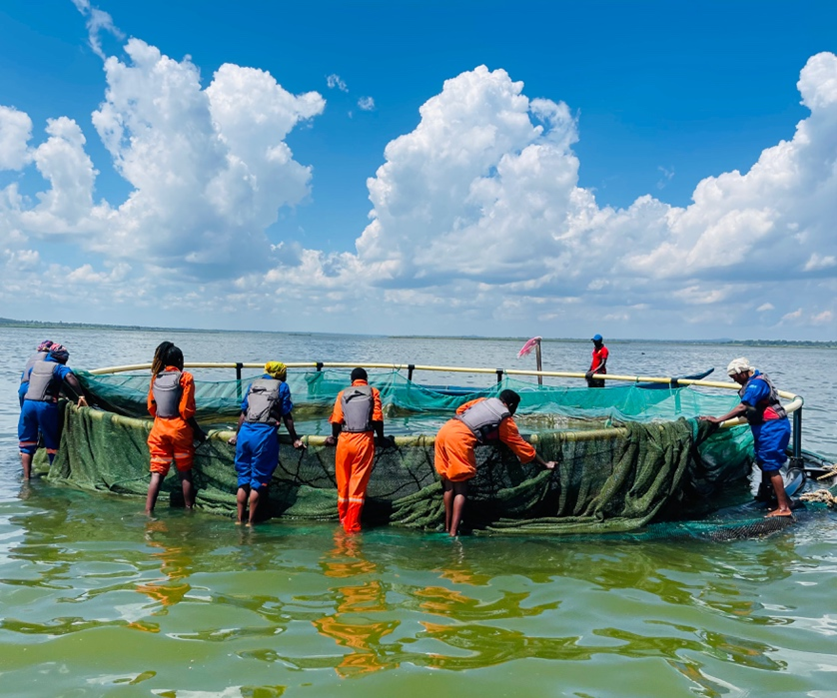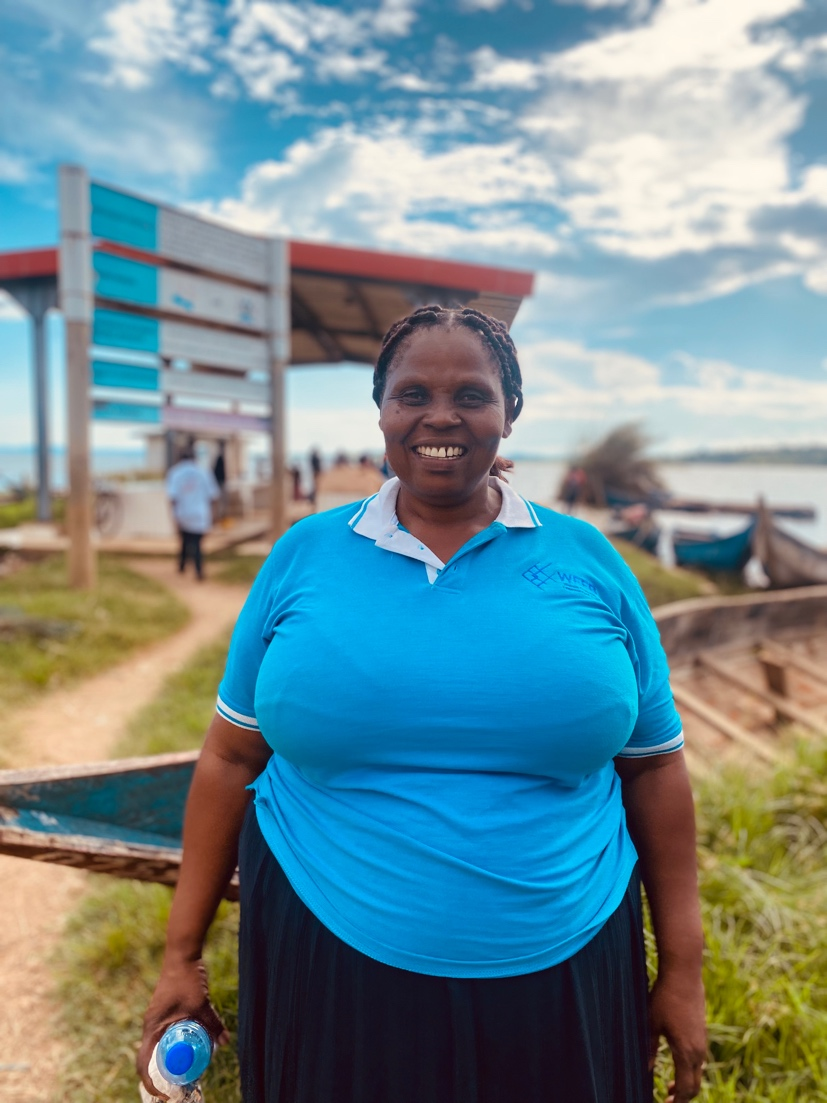Women in Bugiri champion domestic harmony and economic advancement through smart fish farming
Date:

Climate change has adversely affected farming as an economic activity in Africa. With irregular rains, drought, and harsh economic times, many subsistence crop farmers who depend on rains for their livelihoods are suffering the consequences over time. Women, who are primarily involved in farming activities, encounter a greater portion of the consequences of limited resources. They face domestic violence as a repercussion of seeking support with the provision of basic needs that include food and healthcare for their children.
On the shores of Lake Victoria in Uganda’s Bugiri district, the women of Waka Waka are running a cage fishing project funded by UN Women called the Women Economic Empowerment Bugiri (WEEB) Project. The project is working with 1,400 women in the district with a well-structured organization of women running operations, marketing, and the management of entrepreneurs.
"Women work on a rotation basis. The Project is empowering us as women to do what men can also do. Fishing and getting into the water was man's domain but we turned that around, " said Bikobere Silvia, WEEB Board Member.
Immaculate Were, CEO WEEB, who is a driven and passionate leader for the Waka Waka community said that the project is transforming the lives of women and the community. According to Were, her desire is to see that women working under the program are empowered economically as they are the source of ensuring continuity in education for their children and lending support to their spouses since crop farming is not yielding enough to fend for their families.

"Making use of the proceeds from fish sales, women have transformed their quality of life in the household, are buying plots, educating their children, building houses, and now able to contribute financially to the household income,” she said.
Immaculate also mentioned that the project has engaged men and youth in promoting harmony, peace, and working together in the home. The district used to have the highest recorded number of Gender Based Violence however since this project commenced GBV cases have been going down as women are now more economically empowered and able to financially contribute to the family's wellbeing.
The Project “Increasing Women's Economic Empowerment Through Cage Farming in Bugiri District” was started in 2019, and implemented by WEEB Uganda Limited and Bugiri District local government, with support from UN Women funded by Standard Bank SA and the
Government of Sweden. According to Patricia Alotu, WEE Programme Analyst at UN Women Uganda, UN Women developed the project, raised funds, conducted training, monitoring, and evaluation as well as set up structures and policies for the fish farming company.
The Project aims to elevate and transform the lives of local women and their families with enhanced food and nutrition security in households.